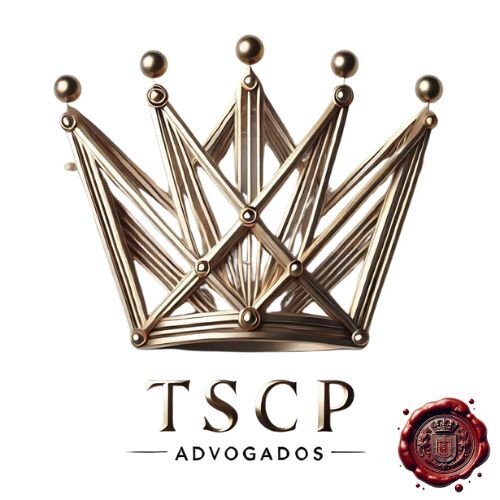Best Native People Lawyers in Porto
Share your needs with us, get contacted by law firms.
Free. Takes 2 min.
List of the best lawyers in Porto, Portugal
About Native People Law in Porto, Portugal
Porto, Portugal, is known for its diverse cultural landscape but has a unique legal context regarding Native People. In the Portuguese legal system, Indigenous groups as legally recognized entities are less prevalent compared to countries with more defined Indigenous populations. Historically, the territory that is now Portugal has been home to a mix of Celtic, Iberian, and Roman peoples. Today, when people refer to Native People in Porto, it often relates to descendants of long-established local families, recognized ethnic minorities, or people with ancestral ties to the region's earliest inhabitants. Legal matters involving Native People tend to consider issues such as heritage protection, cultural preservation, anti-discrimination, and in some cases, the rights of acknowledged minority communities such as the Roma or Sinti populations.
Why You May Need a Lawyer
Engaging a lawyer is critical in situations where understanding complex legal frameworks surrounding identity, heritage, and minority rights is necessary. Common situations in Porto where you may need a lawyer include:
- Discrimination or Human Rights Issues: Facing discrimination based on your Native or minority status in employment, education, or housing.
- Preservation of Cultural Heritage: Seeking to protect culturally significant sites, artifacts, or customs from unauthorized use or destruction.
- Civil Rights Claims: Asserting your rights under Portuguese law if you believe they have been infringed due to your heritage or cultural practices.
- Immigration or Residency Status: Navigating legal processes if you are recognized as part of an ethnic minority with specific historical ties to the region.
- Access to Social Services: Ensuring fair access to healthcare, education, and welfare as a member of an acknowledged minority.
A legal specialist ensures your interests are represented, your rights are protected, and the complexities specific to Native People and recognized minorities are properly addressed.
Local Laws Overview
Portugal’s constitution enshrines equality and non-discrimination, meaning local laws in Porto bring protections for all citizens, including recognized minority or Native populations. Some key legal aspects relevant to Native People in Porto include:
- Anti-Discrimination Laws: The Portuguese Constitution and Penal Code outlaw discrimination based on ethnicity, race, or origin, which protects Native and recognized minority populations from unfair treatment.
- Rights to Cultural Expression: National and municipal programs sometimes support the preservation and celebration of minority and traditional cultures, including the right to language and expression.
- Protection of Heritage: Laws regulate the protection of sites, artifacts, and customs of historical or cultural importance, which may include claims made by Native People or descendants of early inhabitants.
- Integration Initiatives: The government undertakes integration programs to support minority inclusion, often with local implementation in Porto. These are particularly relevant to Roma and other recognized groups.
- Legal Status and Representation: While there is no formal legal status for Indigenous groups as seen in other countries, individuals with proven heritage or belonging to recognized minorities can seek specific rights and recognition under Portuguese law.
Understanding local heritage and the context of minority rights is essential for pursuing legal remedies or safeguarding cultural identity in Porto.
Frequently Asked Questions
Who are considered Native People in Porto, Portugal?
Portugal does not have Indigenous populations in the sense recognized in some other countries, but "Native People" may refer to families with deep historical roots in the region or recognized ethnic minorities such as the Roma.
Is discrimination based on ethnicity illegal in Porto?
Yes, Portuguese law strictly prohibits discrimination based on race, ethnicity, or origin. Victims have the right to seek legal remedies.
How can I protect cultural heritage associated with my Native background?
If you are concerned about the preservation or misuse of cultural sites or traditions, you can take legal action under heritage protection laws with help from a qualified lawyer.
Does Portugal recognize any Indigenous rights like land claims?
Portugal’s legal system does not recognize specific Indigenous land claims, but there are protections for cultural and historical heritage that may apply in some cases.
Are there special government programs for Native or minority people in Porto?
There are initiatives to support recognized minority groups, especially in areas like education, social integration, and cultural events, mainly targeting the Roma community.
Can I access legal aid if I cannot afford a lawyer?
Yes, Portugal offers legal aid to individuals with insufficient financial means, including members of recognized minority communities.
How can I report discrimination or hate crimes?
You can report such incidents to the local police, the Comissão para a Igualdade e Contra a Discriminação Racial (CICDR), or seek assistance from lawyers specializing in human rights law.
Are there organizations that advocate for Native or minority rights in Porto?
Yes, several NGOs and governmental bodies offer support and advocacy for ethnic minorities, including SOS Racismo and the CICDR.
What documents are needed to prove heritage or minority status?
This varies, but typically includes birth records, community testimony, cultural association membership, or documented family history. Legal advice can clarify what is required for your case.
Is it possible to reclaim lost cultural artefacts?
In some cases, Portuguese law allows for the recovery of lost or stolen cultural artefacts, especially those that are of significant historical or cultural value. Legal assistance is recommended to navigate these processes.
Additional Resources
To receive support or more information on Native People, minority rights, and heritage issues in Porto, consider these key resources:
- Comissão para a Igualdade e Contra a Discriminação Racial (CICDR): Oversees the fight against racial and ethnic discrimination in Portugal.
- SOS Racismo: A non-governmental organization providing support, advocacy, and legal guidance on discrimination cases.
- Associação Letras Nómadas: Works specifically with Roma communities, offering integration and legal support.
- Gabinete de Apoio à Vítima (Victim Support Office): Offers assistance to victims of hate crimes and discrimination, including legal aid referrals.
- Provedoria de Justiça (Ombudsman): Governmental office for complaints about rights issues concerning public administration or discrimination.
Next Steps
If you believe your rights as a Native Person or recognized ethnic minority in Porto have been violated, or if you seek to safeguard your heritage or identity, follow these steps:
- Gather any documentation or evidence relevant to your situation, such as records of discrimination, proof of heritage, or information on cultural property.
- Research and contact local organizations or support offices for initial advice and to understand your rights under Portuguese law.
- Consult with a lawyer who specializes in discrimination, heritage, or minority rights law. A legal professional can assess your case and guide you through the appropriate processes.
- If eligible, apply for legal aid to ensure you have access to representation regardless of your financial situation.
- File reports or claims with relevant authorities, such as the police, CICDR, or Ombudsman if you are facing discrimination or legal challenges.
Taking informed action with the assistance of qualified legal professionals and local organizations will help you uphold your rights and protect your cultural identity or interests in Porto, Portugal.
Lawzana helps you find the best lawyers and law firms in Porto through a curated and pre-screened list of qualified legal professionals. Our platform offers rankings and detailed profiles of attorneys and law firms, allowing you to compare based on practice areas, including Native People, experience, and client feedback.
Each profile includes a description of the firm's areas of practice, client reviews, team members and partners, year of establishment, spoken languages, office locations, contact information, social media presence, and any published articles or resources. Most firms on our platform speak English and are experienced in both local and international legal matters.
Get a quote from top-rated law firms in Porto, Portugal — quickly, securely, and without unnecessary hassle.
Disclaimer:
The information provided on this page is for general informational purposes only and does not constitute legal advice. While we strive to ensure the accuracy and relevance of the content, legal information may change over time, and interpretations of the law can vary. You should always consult with a qualified legal professional for advice specific to your situation.
We disclaim all liability for actions taken or not taken based on the content of this page. If you believe any information is incorrect or outdated, please contact us, and we will review and update it where appropriate.












